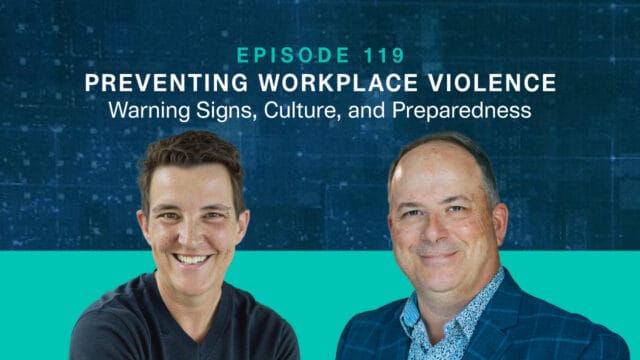
Taking Back Ownership of OQ Programs – The New York White Paper (Part 1)
In February 2019, the Pipeline Safety Section within the New York State Department of Public Service (NYSDPS) published an Operator Qualification White Paper advocating that, in absence of action by PHMSA at the federal level, states should be taking action to require operators to improve their OQ programs. Predictably, this white paper has generated strong opinions and much discussion throughout the industry. In my 2-part article, I’ll break down the white paper, including why it was written, the chief concerns raised by the NYSDPS regarding current OQ programs, the “Model” Plan for OQ that’s been proposed as the new standard for operators in the state of New York, as well as some tips for how technology can help support implementation of the improvements put forward in the “Model” Plan. Let’s dive in…
What is “the New York White Paper”?
The NYSDPS intends its white paper to be “a blueprint for operators to reclaim full responsibility and ownership of the OQ process.” The paper lays out the department’s concerns about the current state of NY operators’ OQ programs and details a model OQ plan, as well as a series of best practices that the NYSDPS believes should be required as part of all NY operators’ OQ programs. The overarching goal of these proposed improvements is to “increase the likelihood that NY’s natural gas pipelines will continue to operate safely.” The paper also advocates that, given PHMSA’s delay in closing gaps in OQ program requirements at the federal level (via the 7/10/15 OQ NPRM), state regulators should be stepping in to fill this void.
The white paper’s content is based upon information that was presented, and an exchange of ideas that took place, at an OQ technical conference hosted by the NYSDPS in October 2017, which was attended by NYSDPS staff, industry representatives, and several providers of third-party OQ solutions.
What caused the NYSDPS to conclude that urgent changes are needed to OQ programs and to publish this white paper?
The call for change in this white paper reflects the NYSDPS’s concerns that current OQ programs are not achieving the stated intent of the OQ Rule: “to ensure a qualified workforce and to reduce the probability and consequences of incidents caused by human error.” According to the paper, this opinion was formed based on:
- Program deficiencies found by NYSDPS staff during their OQ audits/investigations;
- During inspections, NYSDPS staff have observed that qualified individuals are making mistakes as they perform covered tasks;
- Recent post-construction verification excavations that have revealed numerous deficiencies in how the work was performed and how these projects were overseen;
- Recent pipeline safety incidents, such as the one in Merrimack Valley, MA, where the ongoing NTSB investigation has revealed that the low-pressure distribution system was over-pressurized, which was caused, in part, by “improper qualification of operator workers;” and,
- The lack of practical evaluations and lack of focus on operator-specific procedures and equipment as part of the qualification process under an off-the-shelf OQ program that’s used by many NY operators.
What are the key themes of the NYSDPS’s concerns regarding current OQ programs?
The paper concludes that “the key element missing in current OQ plans is operator control.” More specifically, the NYSPDS is concerned about “outsourcing of operator responsibility, ownership, and control of the OQ requirements to third-party vendors.” The paper calls attention to several key areas where the NYSDPS perceives that lack of operator control over an off-the-shelf OQ program has resulted in program deficiencies, such as:
- Generic qualifications – Rather than training and evaluating their workforce using company-specific procedures, specifications, and equipment, many operators are simply relying on an off-the-shelf program’s generic training and evaluation criteria. The concern is that this does “nothing to prepare workers for what they’ll encounter on each operator’s unique system,” nor does it ensure proficiency when dealing with abnormal operating conditions (AOCs) that could be encountered.
- Qualification based solely on written exams – Being qualified entails having the knowledge, skills, and abilities to perform the covered task at hand. Rarely can a written evaluation alone confirm someone’s skills and ability, yet in many cases with the off-the-shelf OQ program that’s commonly used in NY, qualifications are being awarded based solely on test-taking. The lack of practical evaluation criteria, coupled with multiple allegations of cheating on this OQ program’s written evaluation exams, have caused the NYSDPS to question the true qualification of the entire workforce that was qualified using this off-the-shelf OQ program.
- Inconsistency of training and qualification between employees and contractors – While operator employees are trained on their company’s specific procedures and equipment, in many cases contractors are put to work based on a generic qualification achieved solely through a written evaluation process. The result? A real difference in the quality of an employee’s qualification versus a contractor’s qualification and therefore, likely a difference between each one’s ability to safely perform a covered task and deal with AOCs.
- No analysis of task criteria – Some operators are accepting a contractor’s generic qualifications without ever performing a review of the associated off-the-shelf OQ program’s task criteria and training programs to ensure that they align with the operator’s own OQ plan. And, when this type of analysis does occur, it’s rarely documented.
In Part 2 of my article, I’ll break down the requirements of the NYSDPS’s “Model” Plan for OQ, which include a variety of program improvements intended to address the issues above.
So can an operator retain ownership of its OQ program and enjoy the efficiencies of working with a third-party OQ vendor to help manage it?
With the right partner as your OQ vendor, absolutely! Here are a few things to look for to ensure you’re working with a vendor that always keeps you in control of your own OQ program, rather than just delivering something “off the shelf”:
- “Common” Task List Development & Maintenance – Several OQ vendors, including Veriforce, offer an “out-of-the-box” list of covered tasks. The key question here is – who is responsible for development and maintenance of these “common” covered tasks? The answer should be, the operators that use them. For example, any operator that partners with Veriforce can identify the need for a new or revised covered task. This request is reviewed by a steering committee comprised of operator members, task development/updates are completed by SMEs from a variety of operators, and a draft of the task is circulated to all Veriforce operators for review/comments and final approval. So, while Veriforce serves as a facilitator, this is ultimately a highly-inclusive, operator-driven, well-documented review and approval process that serves to ensure that if an operator chooses to use a “common” covered task, it’s fully aligned with their OQ plan.
- Task List Flexibility – Your task list is YOURS. Period. You should always have the option to use “common” covered tasks, operator-specific tasks (see more below), or a hybrid of the two to support your unique business needs and OQ plan. And, your OQ vendor should support you in your efforts to reconcile “common” covered tasks against the requirements of your company’s OQ plan.
- Support for Operator-specific Tasks – Where there’s not a fit for your business, your OQ vendor’s program should accommodate operator-specific tasks. This could mean creation of a completely new covered task, or starting with a “common” covered task and tweaking its evaluation criteria, AOCs, span of control limits, requalification intervals, etc. to best reflect your operations.
- Robust Evaluator Program – Evaluators are, in many ways, the lynchpins of your OQ program, as you’re entrusting them to accurately assess an individual’s knowledge, skills, and abilities (KSAs) and award qualification based on YOUR program’s evaluation criteria. This is a significant responsibility. Your OQ vendor should have a robust evaluator program that includes evaluator selection criteria (e.g., documentation such as a resume, as well as technical and character references), formal evaluator training, and quality assurance checks/audits to ensure that all evaluation documentation is in order and that evaluation procedures and YOUR task criteria are being accurately utilized in the field.
- Performance-based Evaluation That Accounts for Operator Specifics – For any “hands-on” tasks, evaluation should include both knowledge- and skills-based criteria as standard (and if skills-based criteria are missing, the reason why should be documented). And, even when a “common” covered task is used, the criteria should require the evaluator to assess the individual’s KSAs using operator-approved procedures and appropriate equipment/material.
- Annual Review Process – At least annually, your OQ vendor should partner with you to perform a thorough review of your OQ plan, including a discussion of your task list, to ensure that your OQ program is always evolving to keep pace with your business.
How might the changes proposed by the NYSDPS impact operators outside of New York?
With the OQ NPRM stuck in limbo at the federal level, we may see other states beyond New York contemplate taking action to require OQ program improvements through the local regulatory authority. Certainly, the industry will be watching the progress of the NYSDPS’s proposal closely to see if precedent is established for this type of state-level regulatory activity. It’s also worth noting that Veriforce operator clients tell us they’re starting to see inspectors from PHMSA, as well as states beyond New York, inquiring about their use of the OQ best practices included in the OQ NPRM. As a result of this type of inspection activity, some of our operator clients have proactively incorporated training and operator-specific policies/procedures into their evaluation processes and qualification criteria.
Sign up for the latest company updates, knowledge center resources, and more, delivered right to your inbox.

Sign Up for the Latest Updates




